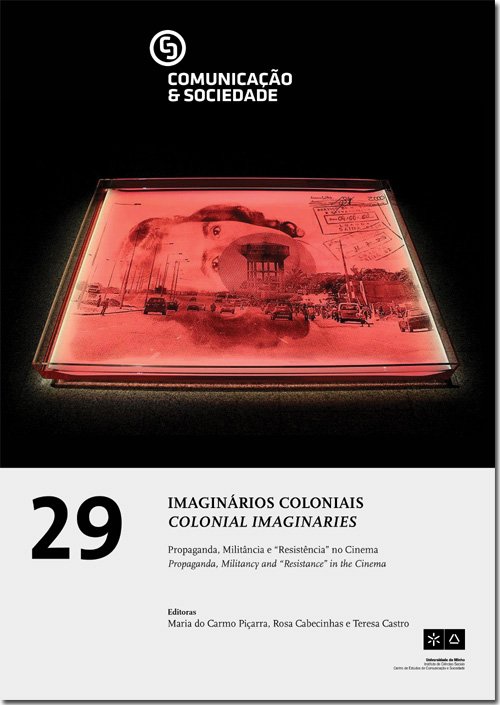Africa em Lisboa - Os Indígenas da Guiné na Grande Exposiçã o Industrial and Guiné Aldeia Indígena em Lisboa - 1932: the portrayal of the female body
DOI:
https://doi.org/10.17231/comsoc.29(2016).2417Keywords:
Visual studies, colonial representations, Estado Novo, cinema, archive, black female bodyAbstract
In this essay I will discuss the iconographic constructions developed by the Portuguese colonial project, arguing that Estado Novo has used cinema to consolidate social categories defined by the regime propaganda, using a discourse based on reality and authenticity and through the projection of stereotyped structures such as race and gender. Moving in the background of the theoretical frame on the concepts of archive and digital archive, the analysis will focus on a deconstructive re-interpretation of colonial and dominant narratives in two documentaries realized for the Portuguese industrial exposition in 1932, África em Lisboa – Os Indígenas da Guiné na Grande Exposição Industrial ((Africa in Lisbon- The Indigenous People of Guinea in The Great Industrial Exhibition) and Guiné Aldeia Indígena em Lisboa – 1932 (Guinea Indigenous Village in Lisbon- 1932). The discussion will hence be centered on the representation and the construction of relations of dominance and power over the black female body.Downloads
Downloads
Published
How to Cite
Issue
Section
License
Authors own the copyright, providing the journal with the right of first publication. The work is licensed under a Creative Commons Attribution 4.0 International License.











